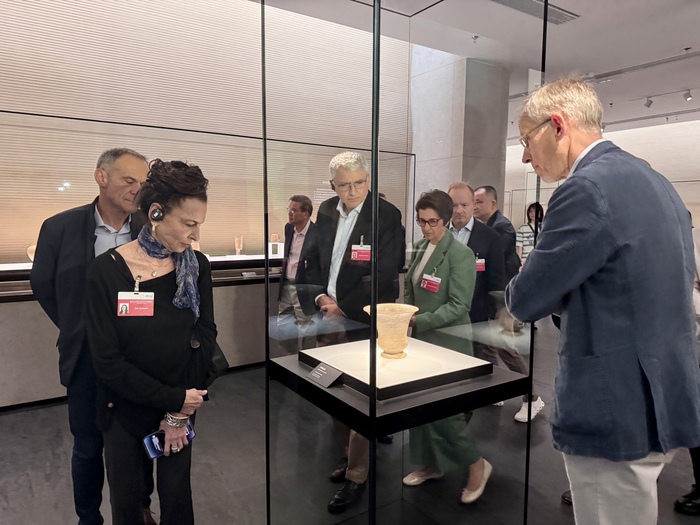The spirit of openness is foundational to Shanghai and the Advisory Council that emerged from it.

Photo from Tuchong
by HUANG Jingyuan
On September 21, 2024, on the eve of the 36th International Business Leaders' Advisory Council for the Mayor of Shanghai (IBLAC), dozens of international entrepreneurs gathered at the Shanghai Museum. The executives were captivated by the exhibits' cultural significance, particularly the colorful Tang Dynasty pottery, which symbolizes an era of openness. This spirit of openness is foundational to Shanghai and the Advisory Council that emerged from it.

The annual meeting, initiated in the late 1980s by then-Shanghai Mayor Zhu Rongji, now includes 44 members from renowned multinationals across 15 countries, along with 10 honorary members. The main theme of this year's meeting is "Leading Paradigm Transformation, Expanding Opening-up and Cooperation, Advancing Shanghai's International Sci-tech Innovation Center Initiative in the New Era."
Gary Guthart, CEO of Intuitive Surgical, spoke highly of Shanghai's business ecosystem and talent pool at his first attendance at the IBLAC. He recommended that the city strengthen collaboration between government, businesses, and academia, and accelerate market access to boost innovation and R&D.

Severin Schwan, Chairman of Roche Group and IBLAC, has lived in Shanghai for years and helped establish the Roche Shanghai Innovation Center with an 863 million yuan investment. He sees great potential for future collaboration in medical care, technology, and digitalization, positioning Shanghai as a global medical technology hub.
Biomedicine is indeed one of Shanghai's top three industries, with the sector surpassing 933.7 billion yuan in 2023. Eighteen of the world’s top 20 pharmaceutical and medical device companies have R&D or production hubs in the city.
Jean-Pascal Tricoire, Chairman of Schneider Electric and a Council member since 2011, emphasized the need for Shanghai to leverage AI, digitalization, IoT, and big data to enhance manufacturing. This aligns closely with the city's four-year action plan for the coordinated transformation of its manufacturing industry, which aims for over 85 percent of above-designated-size manufacturing enterprises in Shanghai to achieve digital transformation by 2027.
Miguel Lopez, Chairman and CEO of ThyssenKrupp AG, highlighted the need for direct dialogue between multinational companies and Shanghai government leaders to enhance foreign investor confidence amid global economic uncertainties. He stressed the importance of a fair competition environment, transparent market mechanisms, strong intellectual property protection, and standardized government supervision, noting ThyssenKrupp's annual investment of at least 1 billion yuan in China, particularly in automotive technology and carbon reduction.
At the 36th IBLAC, over 30 international entrepreneurs will discuss technological shifts, open cooperation, and innovation as Shanghai's development enters a new phase.